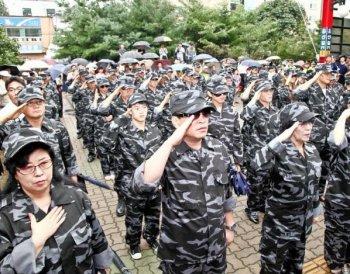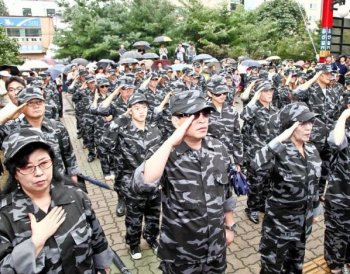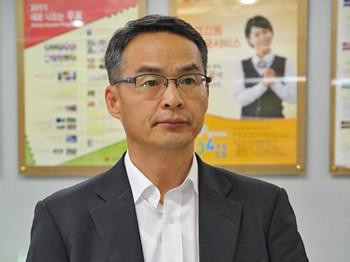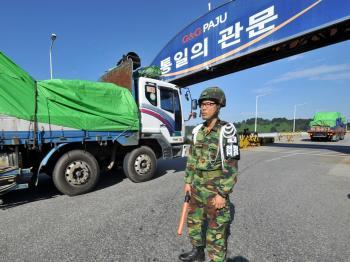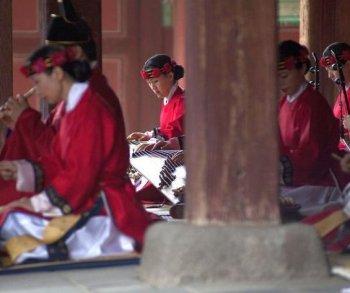Former North Korean Soldiers Wield Phones Instead of Guns
There are people who swear they will not remove their military uniforms until there is unification.
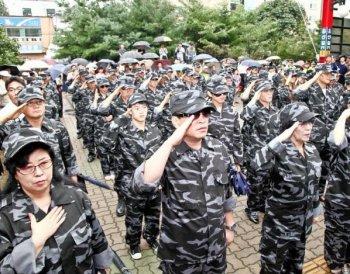
The NK People's Liberation Front, a group consisting of defectors from the North Korea military, hold a founding ceremony on Sept. 9 in downtown Seoul, South Korea. Their aim is to communicate with and convince North Korean soldiers to change the North Korean regime. Jeon Gyung-lim/The Epoch Times
|Updated:
